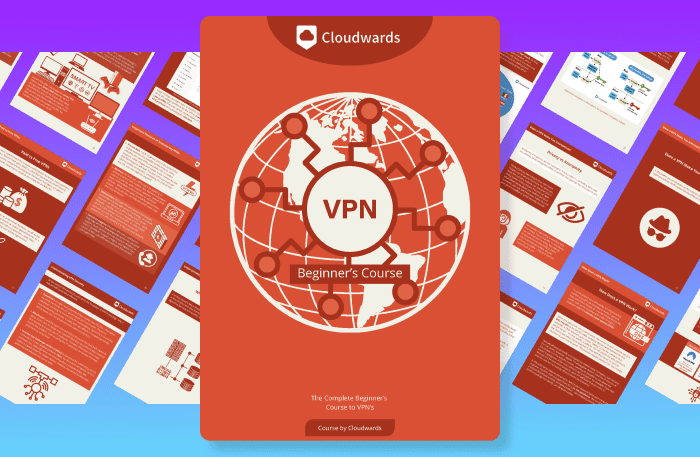What Is the USA PATRIOT Act? Definition, Purpose, Controversies Explained in 2025
The Patriot Act is a controversial U.S. law that was enacted after 9/11 to combat terrorist acts, and it was condemned for its impact on civil liberties. In this guide, we’ll answer the question, “What is the Patriot Act?” and explore its provisions, impact and criticisms.
The Patriot Act, which increased the government’s ability to surveil and collect data in the name of public security, is one of the most controversial and influential laws in U.S. history. When asking, “What is the Patriot Act?” it’s also crucial to understand its lasting impact and learn how you can use tools like the best VPNs to protect your online privacy today.
Over 20 years later, Patriot Act authorities still influence how law enforcement collects data. While the bill was replaced by the USA Freedom Act, many surveillance practices that the original act introduced remain in use. In this guide, we’ll explore all you need to know about the act and its impact today, and discuss how you can secure your personal information.
-
01/29/2025 Facts checked
We’ve included updated details on the Patriot Act, answered popular questions and discussed its recent impacts.
Definition: What Is the USA PATRIOT Act in Simple Terms?
The Patriot Act was a U.S. law designed to expand the investigative and surveillance powers of law enforcement agencies, often at the expense of individual privacy. It was pushed through by President George W. Bush and Attorney General Alberto Gonzales in October 2001, soon after the 9/11 attacks and a spate of anthrax attacks.

Officially titled the “Uniting and Strengthening America by Providing Appropriate Tools Required to Intercept and Obstruct Terrorism Act,” the bill passed with overwhelming support in Congress. It allowed law enforcement agencies to access personal records, tap communications and obtain information without court approval.
Protect Your Privacy. Get Our Free VPN Guide Now!

- Comprehend the essential role a VPN plays in safeguarding your digital life
- Gain a deep understanding of how VPNs function under the hood
- Develop the ability to distinguish fact from fiction in VPN promotions
One of the new tools the act enabled was the sending of National Security Letters (NSLs), which allow federal agencies to request sensitive information from businesses without disclosing the demand. It also made it possible to monitor a suspect across multiple communication devices without needing a new warrant for each device.
Over time, the bill has faced significant criticism for enabling mass surveillance programs, including those exposed by Edward Snowden in 2013. This highlighted how the act allowed widespread monitoring of American citizens and foreign individuals with minimal accountability, raising serious concerns about privacy and civil liberties.
What Is the Purpose of the USA PATRIOT Act?
The purpose of the Patriot Act was to strengthen the nation’s security by giving federal law enforcement and intelligence agencies expanded authority to detect and prevent terrorist actions. The act aimed to improve coordination between agencies like the FBI and the Justice Department so that they could conduct investigations more effectively.
The act also streamlined the process for obtaining a search warrant so that federal agencies could collect data without the delay of traditional legal procedures. It allowed the authorities to track finances, monitor communications (including phone calls and data from internet service providers) and access business records.
Why Was the Patriot Act Passed in 2001?
The Bush administration passed the Patriot Act in the wake of anthrax attacks and the events of 9/11, which exposed vulnerabilities in U.S. security. The intention of the bill was to strengthen the government’s ability to prevent future attacks. The act expanded surveillance, intelligence sharing and the powers of law enforcement agencies.
However, the urgency with which the law was passed left it open to significant criticism — specifically, the fact that the rushed process left little room to debate the impact the law would have on civil liberties.4 Critics still argue that the act was passed without enough consideration of the long-term implications to privacy.
Is the Patriot Act Still in Effect?
No, the Patriot Act is no longer fully in effect. Many provisions expired in 2020 or were replaced, including Section 215, which allowed for the bulk collection of phone call metadata without a search warrant. In its place, the USA Freedom Act of 2015 introduced more limited surveillance powers that require greater oversight and judicial review.
However, some elements of the act remain permanently in U.S. law due to legislation that followed the initial passage.1 These include the expanded use of NSLs, roving wiretaps, information sharing between agencies, trap and trace devices (capturing data but not content from communications) and enhanced penalties for terror-related crimes.
Why Is the Patriot Act Controversial?
The Patriot Act is controversial because of how significantly it expanded government surveillance powers. Provisions such as Section 215 allowed bulk data collection by law enforcement agencies with little or no oversight. This raised concerns regarding unconstitutional searches and overreach by the authorities.
Whistleblower revelations also exposed how the law fueled indiscriminate data collection on millions of innocent American citizens, not just suspected terrorists. Critics argue that this sets a dangerous precedent, with the government prioritizing homeland security over constitutionally protected individual freedoms. 2
What Is One of the Biggest Criticisms of the USA PATRIOT Act?
One significant criticism of the Patriot Act is the use of National Security Letters (NSLs), which allow federal agencies to demand sensitive information without court approval. These letters could compel businesses like internet service providers to hand over customer information while prohibiting the recipient from disclosing the request publicly.
While NSLs were intended to involve only information vital to investigating terrorist plots, critics like the Electronic Frontier Foundation (EFF) stated that NSLs were “ripe for abuse.” 3
Significantly, those served with NSLs could not challenge them or disclose any information about them, including the data the letter requested or the fact that the letter had been received. They risked facing criminal prosecution if they did.
The use of NSLs was declared unconstitutional on multiple different occasions. Notably, the ruling in Doe v. Mukasey found that the NSLs’ nondisclosure requirement violated the First Amendment. 8 In response, Congress revised the provision to require justification for requiring secrecy and allowed recipients to challenge gag orders in court.
Surveillance vs Privacy: Recent Impacts of the Patriot Act
Efforts to reform surveillance practices have continually faced challenges. For instance, in 2024, some U.S. senators attempted to block measures to prevent wiretapping abuse from the Foreign Intelligence Surveillance Act (FISA). 6 Despite concerns about overreach and data safeguarding, minimal changes were made and surveillance continues.
There is also continued cause for alarm regarding the use of advanced surveillance technologies. According to reports, the Trump administration has considered using spyware capable of breaching encrypted messaging apps to support immigration agencies. 7
Fortunately, there are ways you can help maintain your privacy and secure your personal devices and data:
- Use a high-quality password manager to create strong, unique passwords for your online accounts.
- Limit the amount of information you share online, including your name, email address, important dates (like birthdays) and your location.
- Use a secure email provider with end-to-end encryption to protect the information you share.
- Store sensitive files in zero-knowledge cloud storage that only you can access to keep them away from prying eyes.
Final Thoughts
While the Patriot Act has reshaped information monitoring, you can take proactive measures to maintain control over your privacy. For example, there are plenty of free ways to boost your online data protection. Staying informed about your digital rights and regularly updating your security settings will also help protect your personal data.
Do you have privacy or security concerns regarding the legacy of the Patriot Act? Would you like to see law enforcement surveillance powers expanded or reduced? What software or tools do you use to protect yourself when you’re online? Let us know in the comments below, and thank you for reading.
FAQ: Patriot Act Definition
The Patriot Act was a U.S. bill enacted in October 2001 to expand official surveillance and law enforcement powers. The bill was intended to combat terrorist attacks, but it raised concerns about infringement on privacy and individual freedoms.
The biggest criticism the Patriot Act received was that it allowed mass surveillance without prior review or the need for a search warrant. This undermined the protections of the First and Fourth Amendments — like free speech and the right to privacy — and enabled government overreach that could have been exploited.
Critics have argued that the Patriot Act violates First and Fourth Amendment rights that protect civil rights and liberties, and stop unreasonable searches or seizures of an individual’s person, papers, houses or possessions.
Sources:
- Statement of Attorney General Alberto R. Gonzales on the Passage of the USA Patriot Act – Department of Justice
- End Mass Surveillance Under the Patriot Act – ACLU
- National Security Letters (NSLs) – EFF
- Antiterrorism elements of PATRIOT Act gives press advocates pause – Reporters Committee for Freedom of the Press
- Understanding Title III of the “USA Patriot Act” – The State Bar of California
- US Senators Secretly Work to Block Safeguards Against Surveillance Abuse – Wired
- The Technology the Trump Administration Could Use to Hack Your Phone – The New Yorker
- John Doe, Inc. v. Mukasey – Global Freedom of Expression, Columbia University


